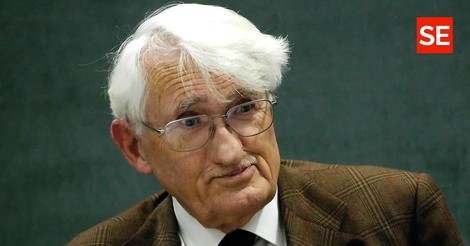Your podcast discovery platform
Curious minds select the most fascinating podcasts from around the world. Discover hand-piqd audio recommendations on your favorite topics.

piqer for: Globalization and politics Global finds
Sezin Öney, originally from Turkey, is based in Budapest and Istanbul. She her journalism career as a foreign news reporter in 1999 and she turned into political analysis as a columnist since 2007. Her interest in her main academic subject area of populism was sparked almost decade ago; and now she focuses specifically on populist leadership, and populism in Turkey and Hungary. She studied international relations, nationalism, international law, Jewish history, comparative politics and discourse analysis across Europe.
Are We Still Good Europeans?
This is Jürgen Habermas' award acceptance speech, delivered in Berlin at the ceremony of the German-French Media Prize. This speech was first published by the Die Zeit and it is translated into English by Charles Hawley.
These are no ordinary days for the future of Europe, and Jürgen Habermas, the leading philosopher reflecting of the future of Europe, is offering his "constructive criticism" in this speech. His criticism is mainly directed towards German Chancellor Angela Merkel and her government. And he does not mince his words in his critique of Merkel, while juxtaposing French President Emmanuel Macron's stance as "courageous" to, at least, have a "vision":
The German government has buried its head in the sand while the French president has made it clear that he wants to make Europe into a global player in the fight for a liberal and more just world order...Macron is rightly criticised in his own country for the socially imbalanced nature of his reforms, but he stands head and shoulders above other European leaders because he looks at each current problem from a much broader perspective and thus isn’t condemned to act reactively. He has the courage to shape policy.
Habermas puts the current crisis of Europe into a broader historical perspective; something that is sorely missed in much of the contemporary debates.
Viewed historically, the overdue step toward an effective Euro Union is part of the same learning curve that already took place once before with the development of national consciousnesses in the 19th century. Then too, the cognisance of national belonging beyond town, city and region did not evolve in any “natural” way. National identities were, rather, purposefully created by leading elites by adapting the shared consciousness of the populations to the already existing and wider ranging functional contexts of modern territorial states and national economies.
And Habermas thinks that the way to "move forward" is not by retreating behind national borders.
Stay up to date – with a newsletter from your channel on Globalization and politics.
